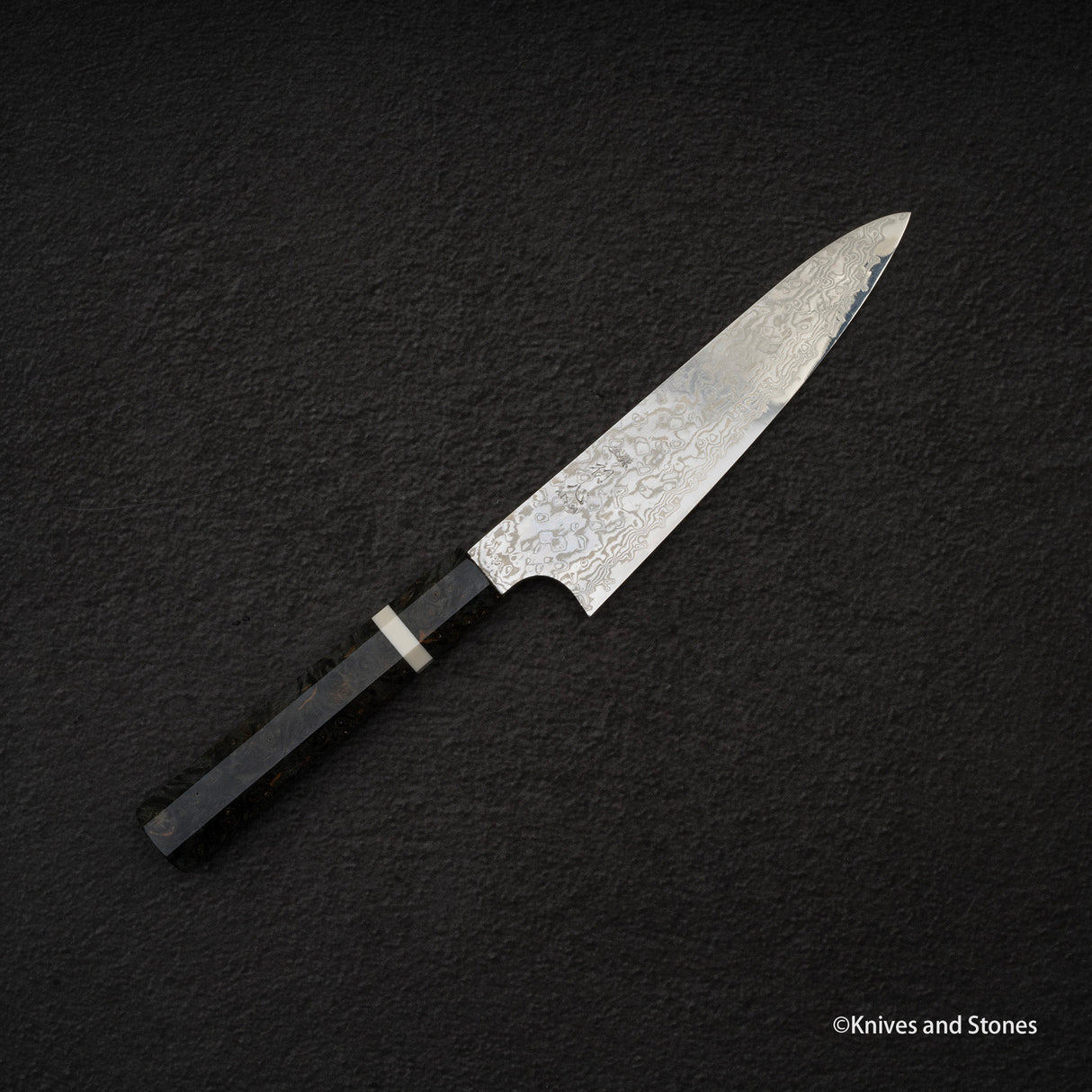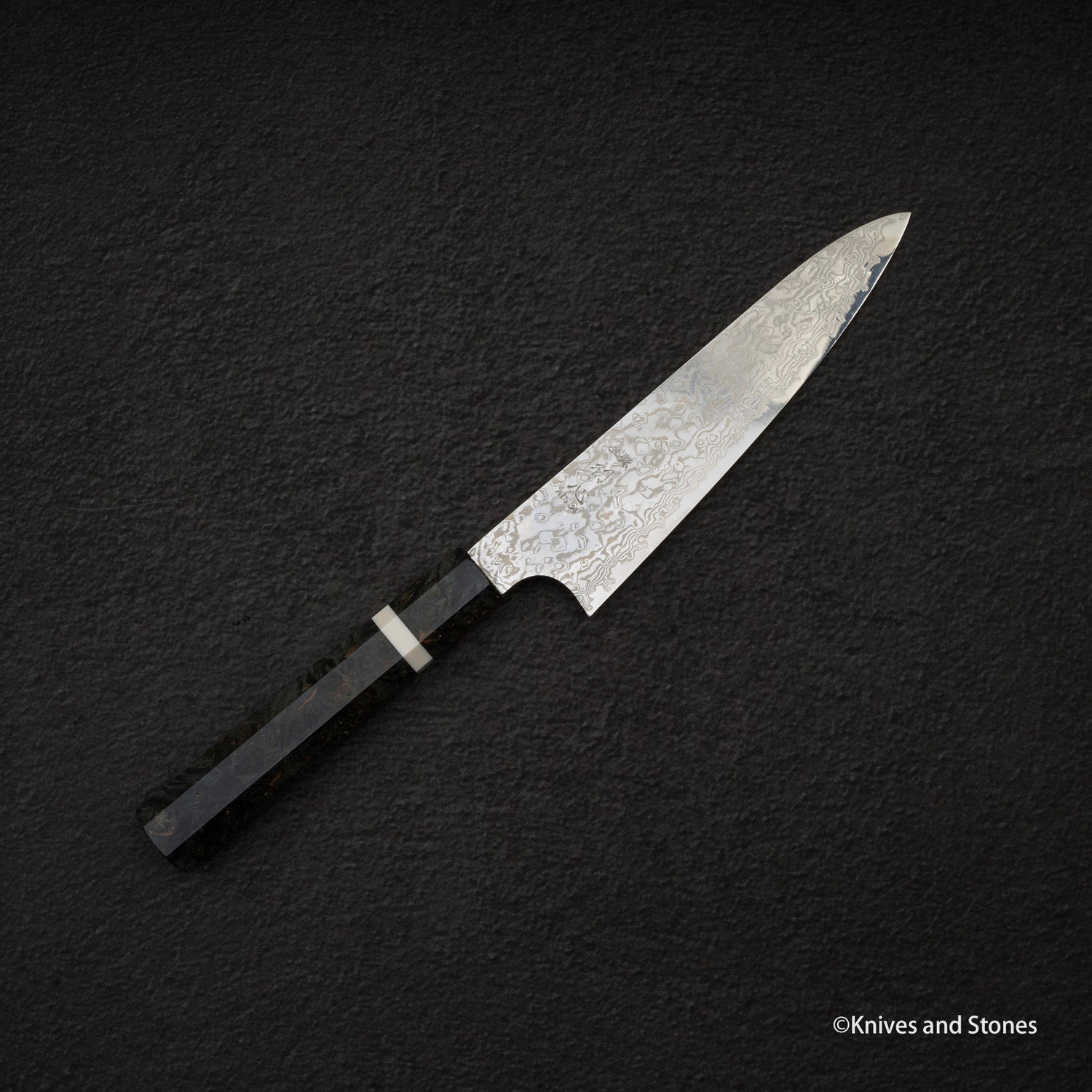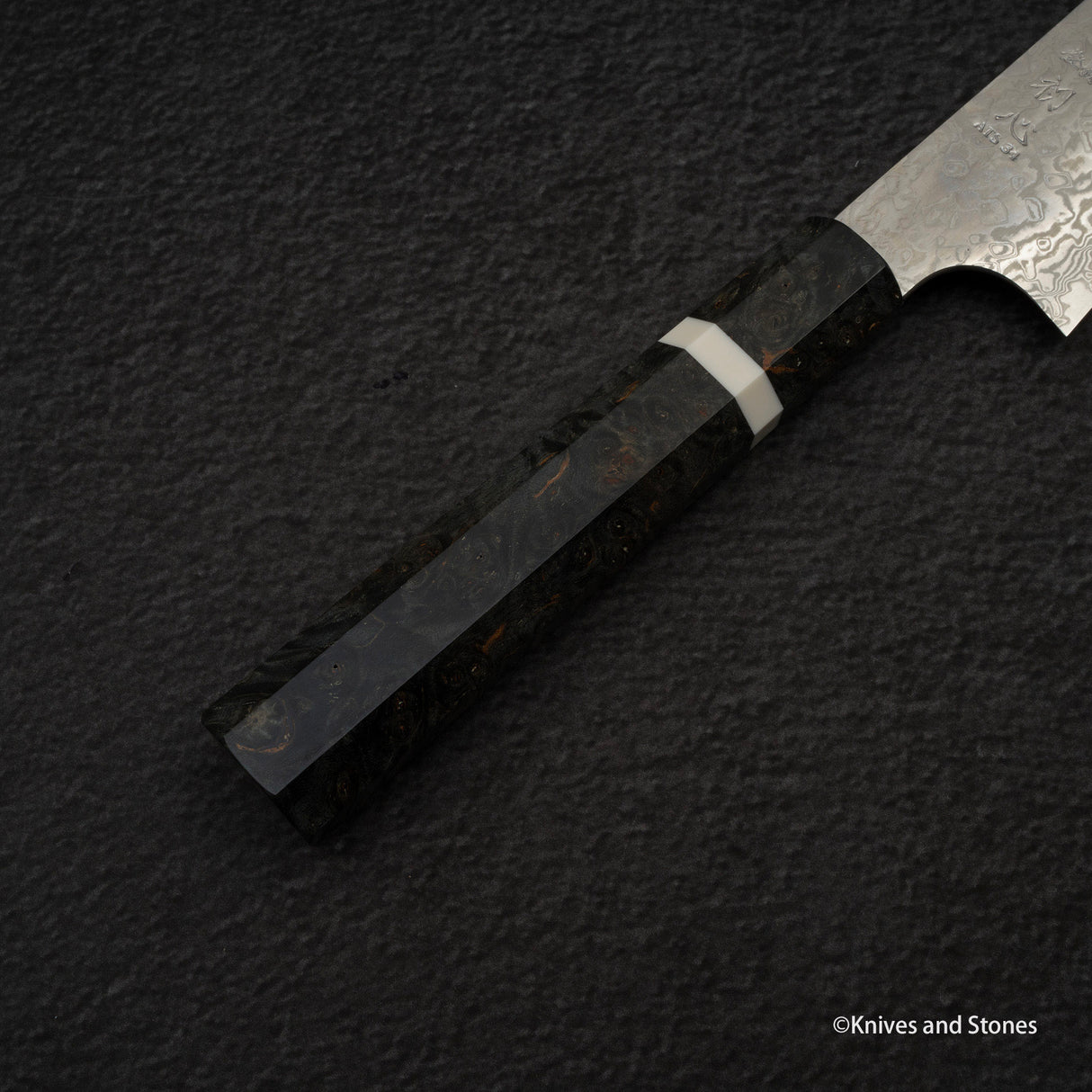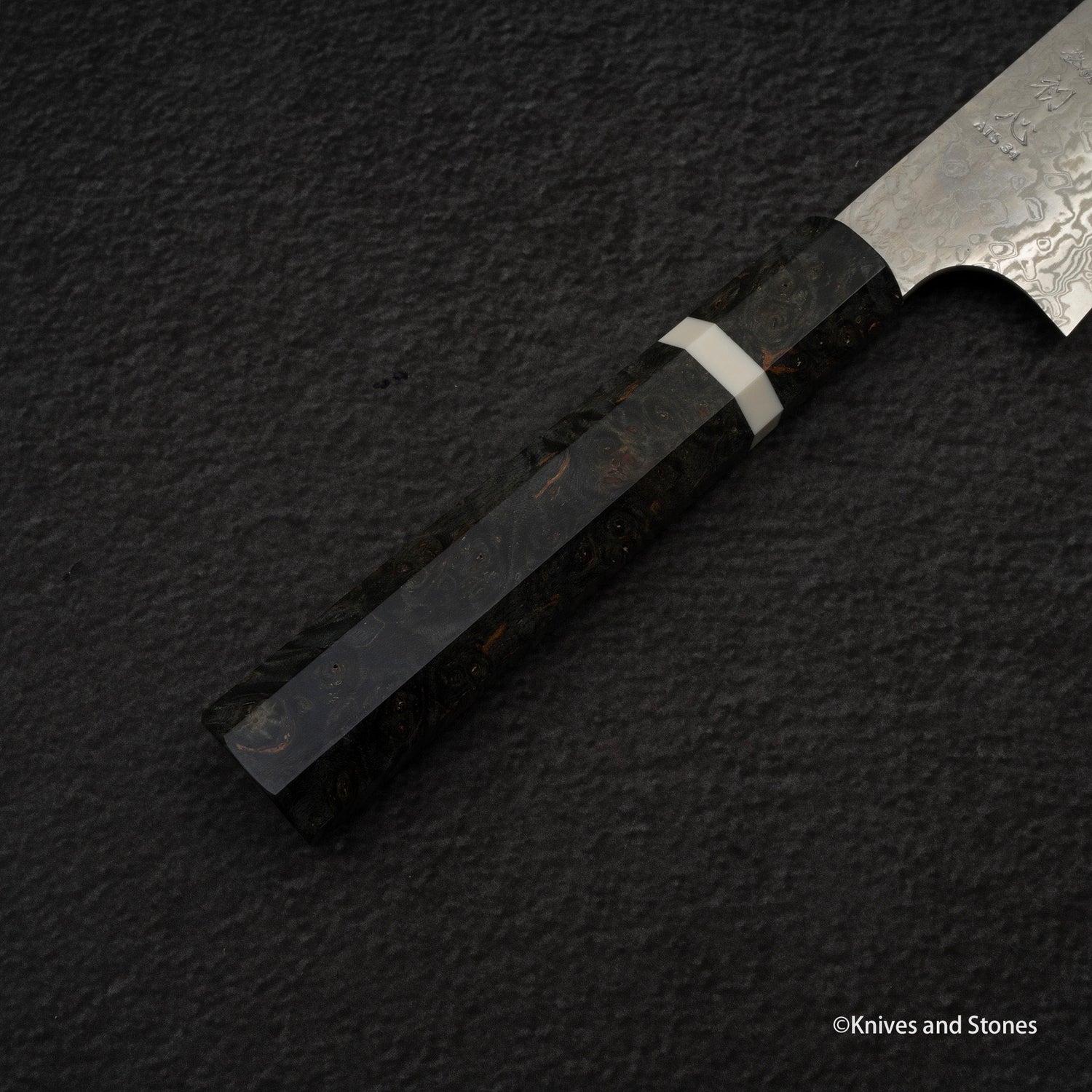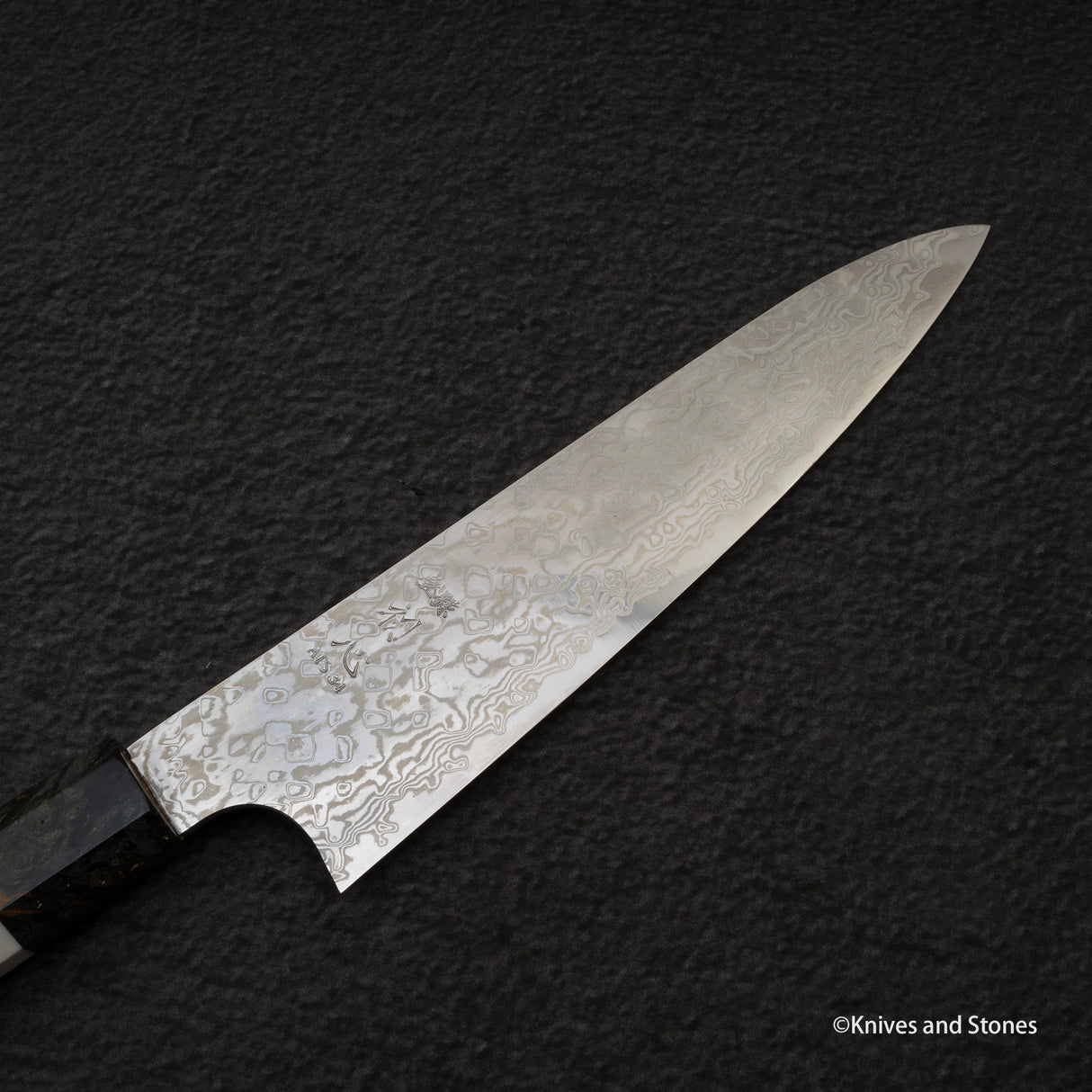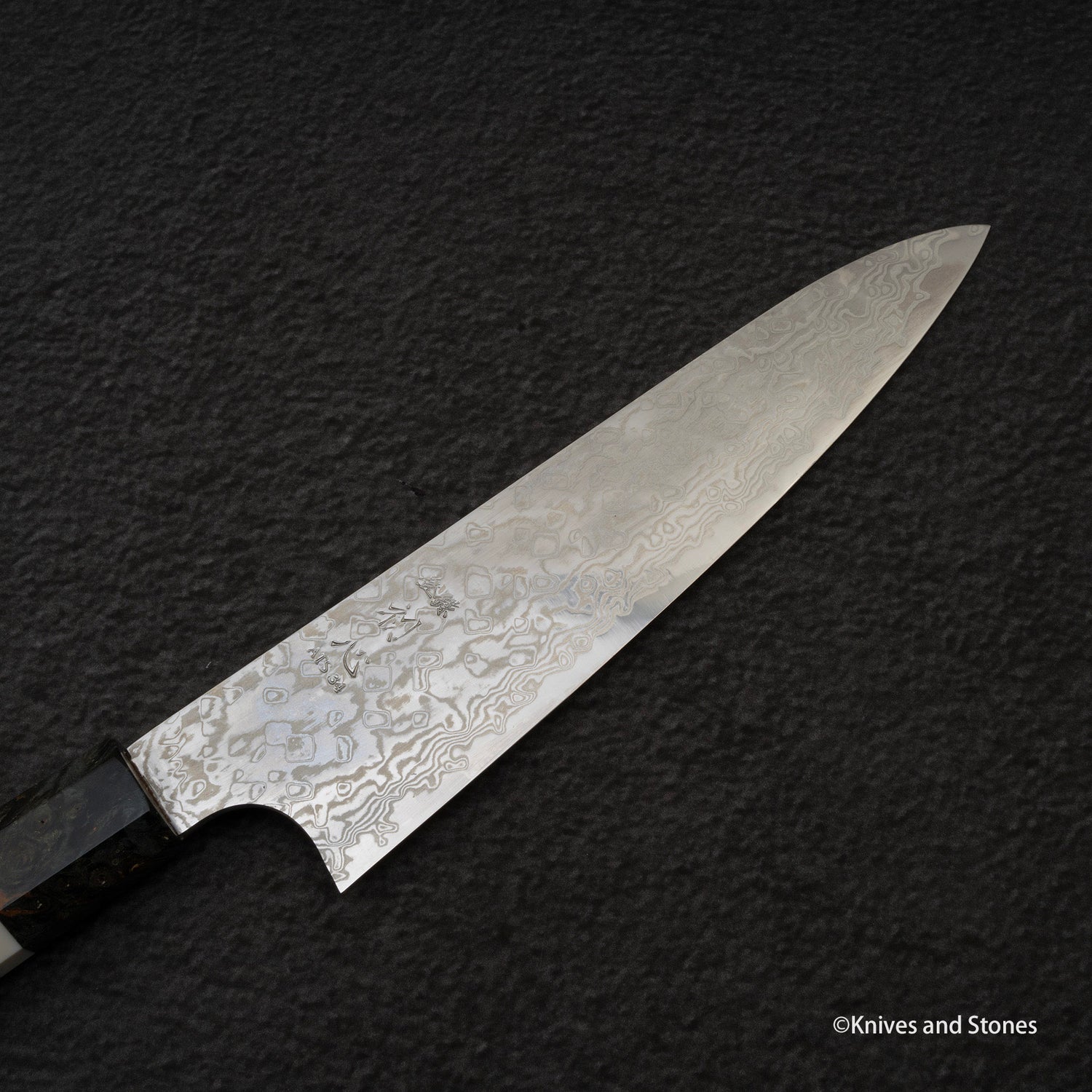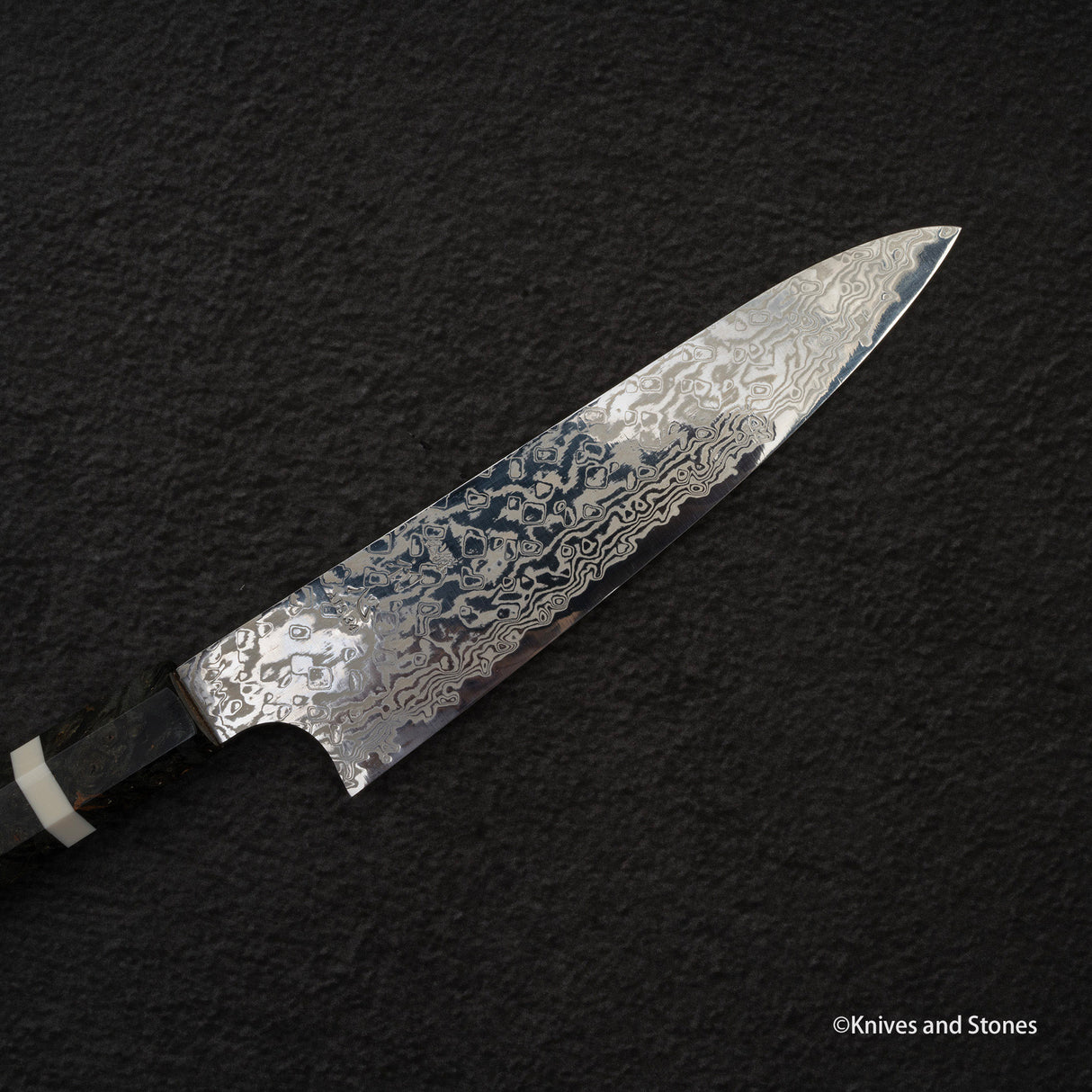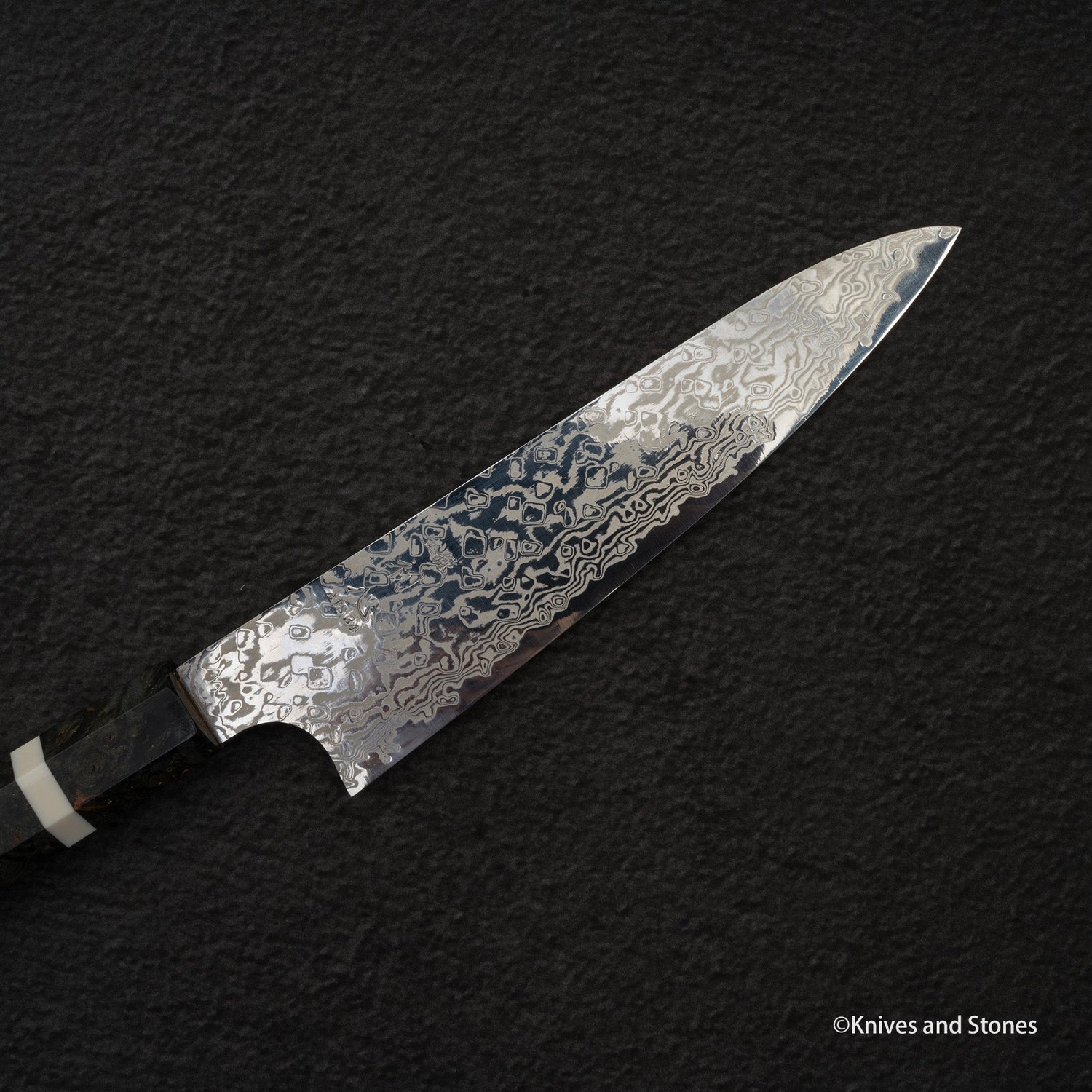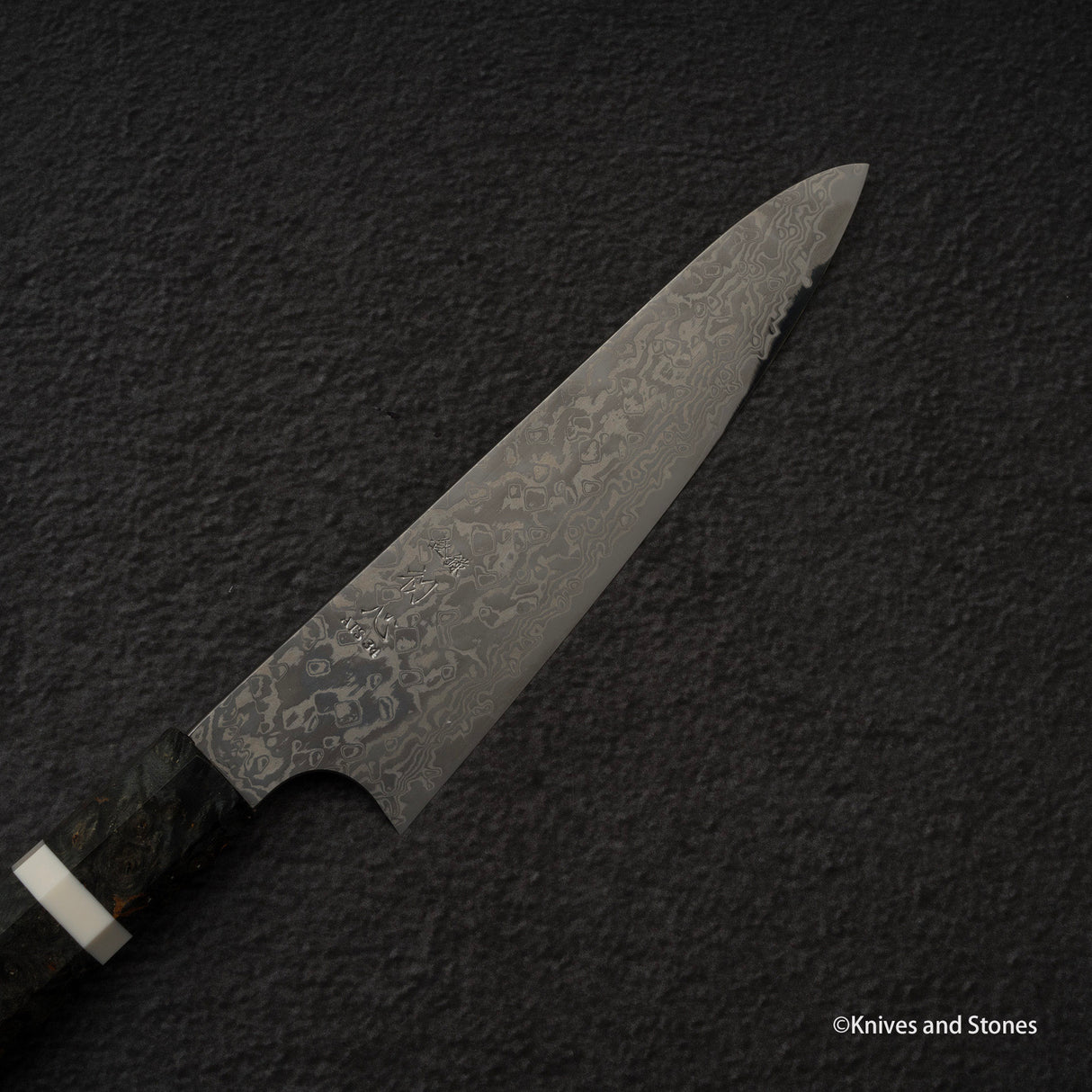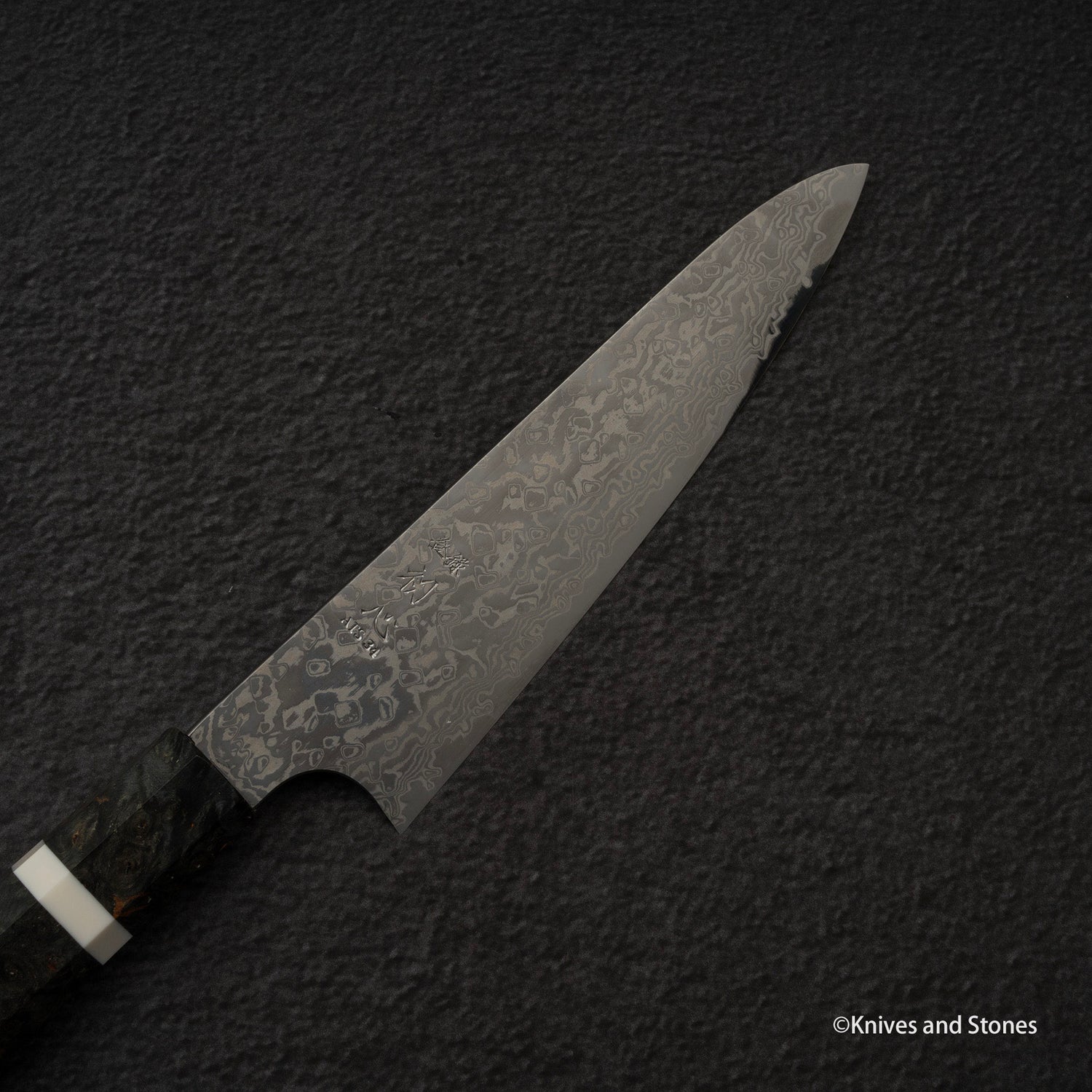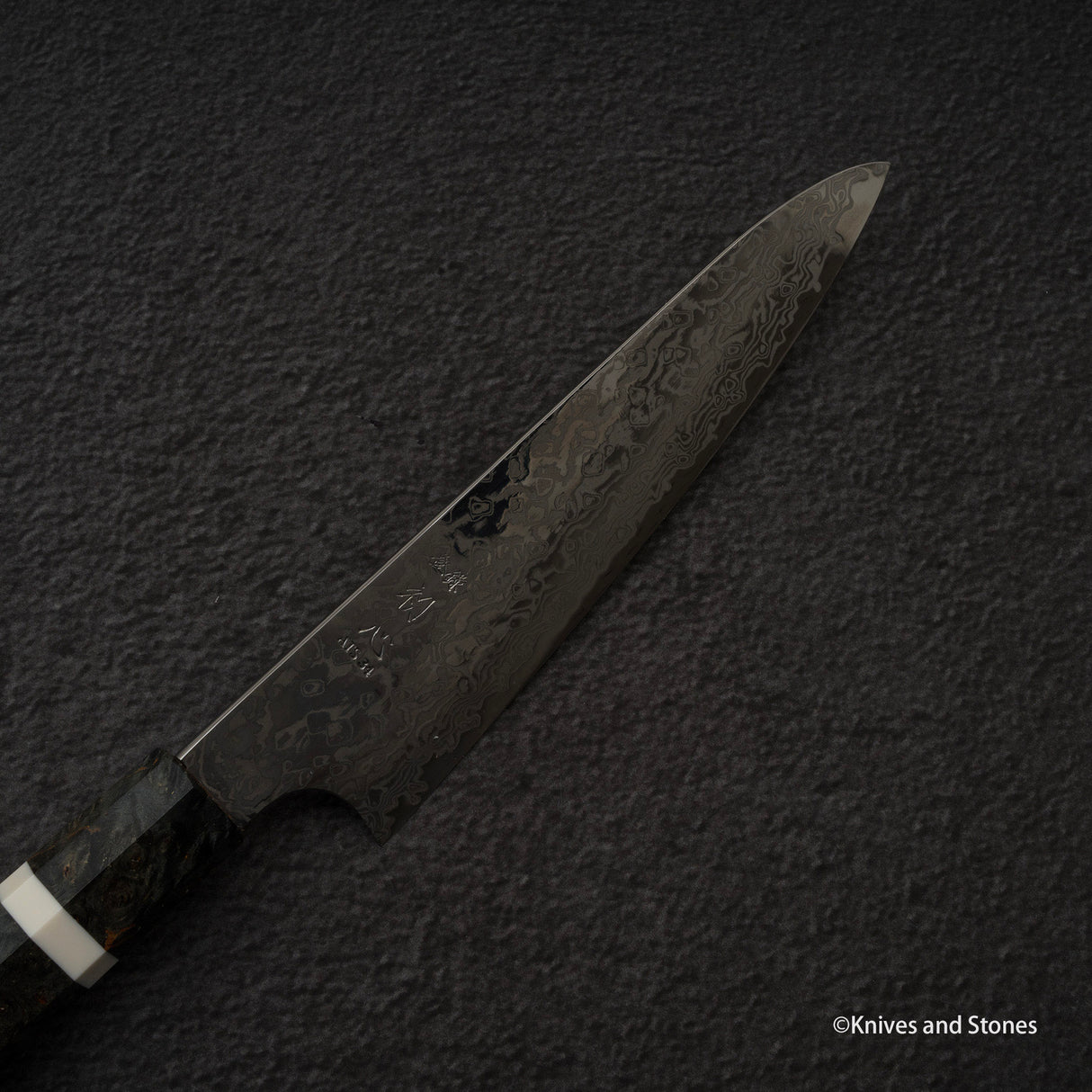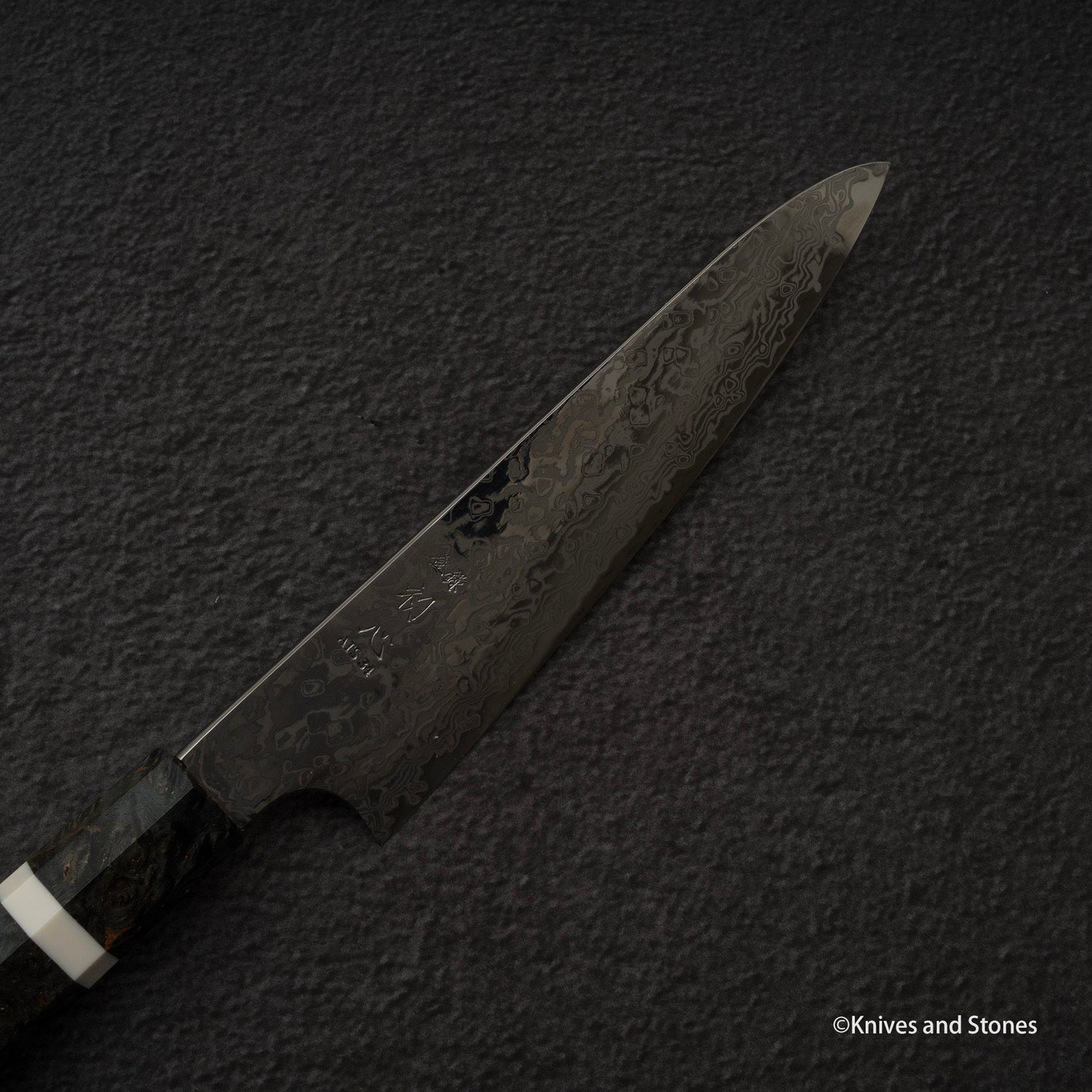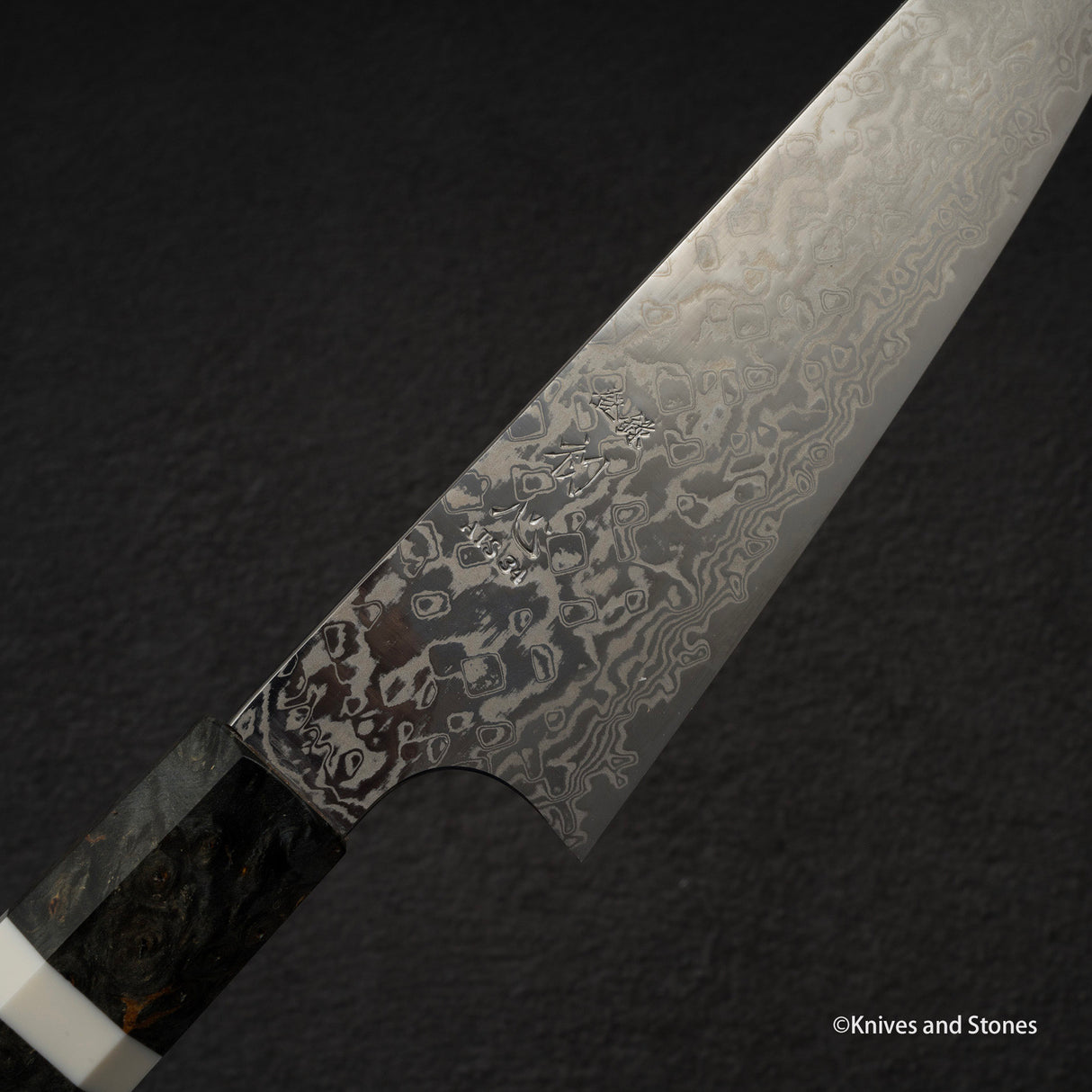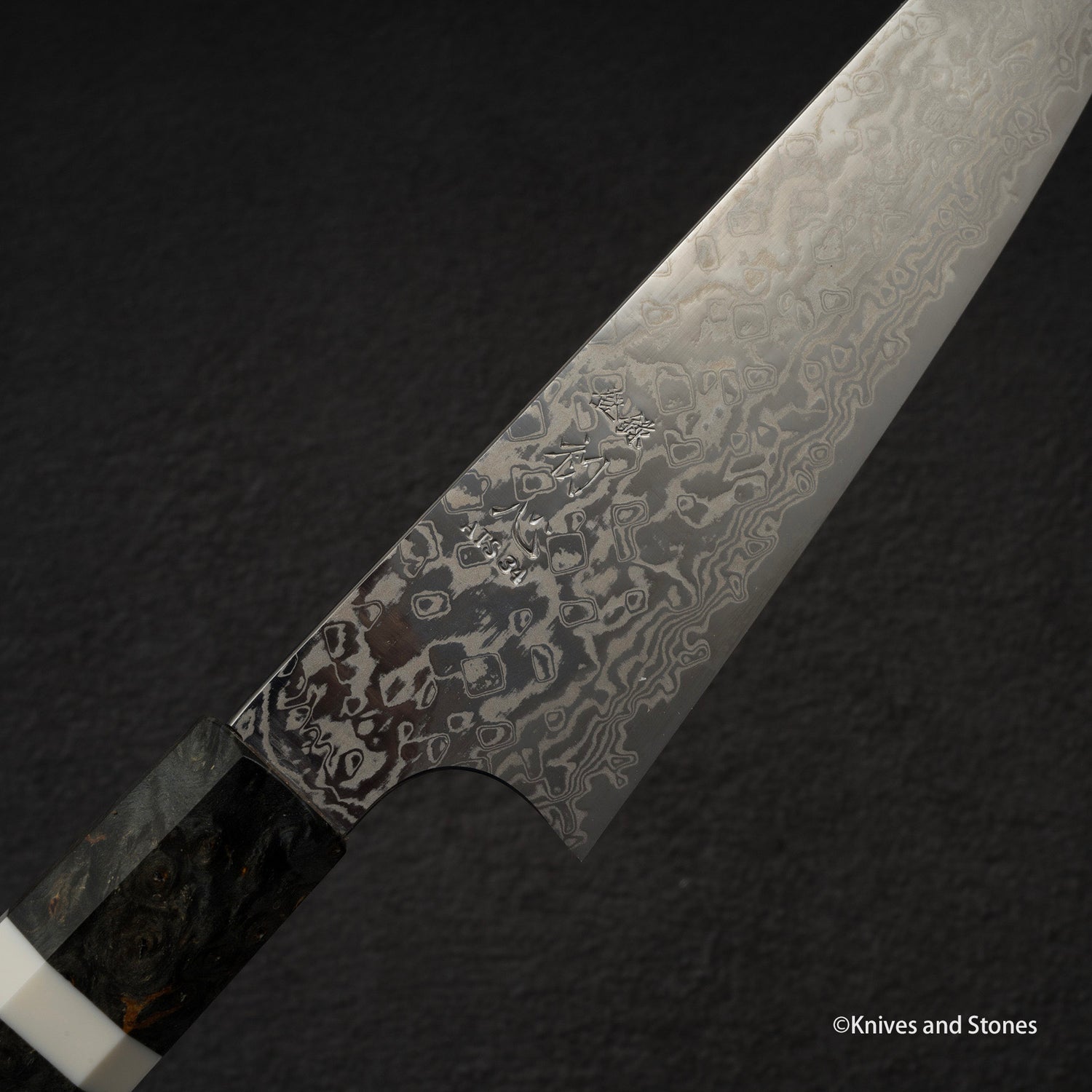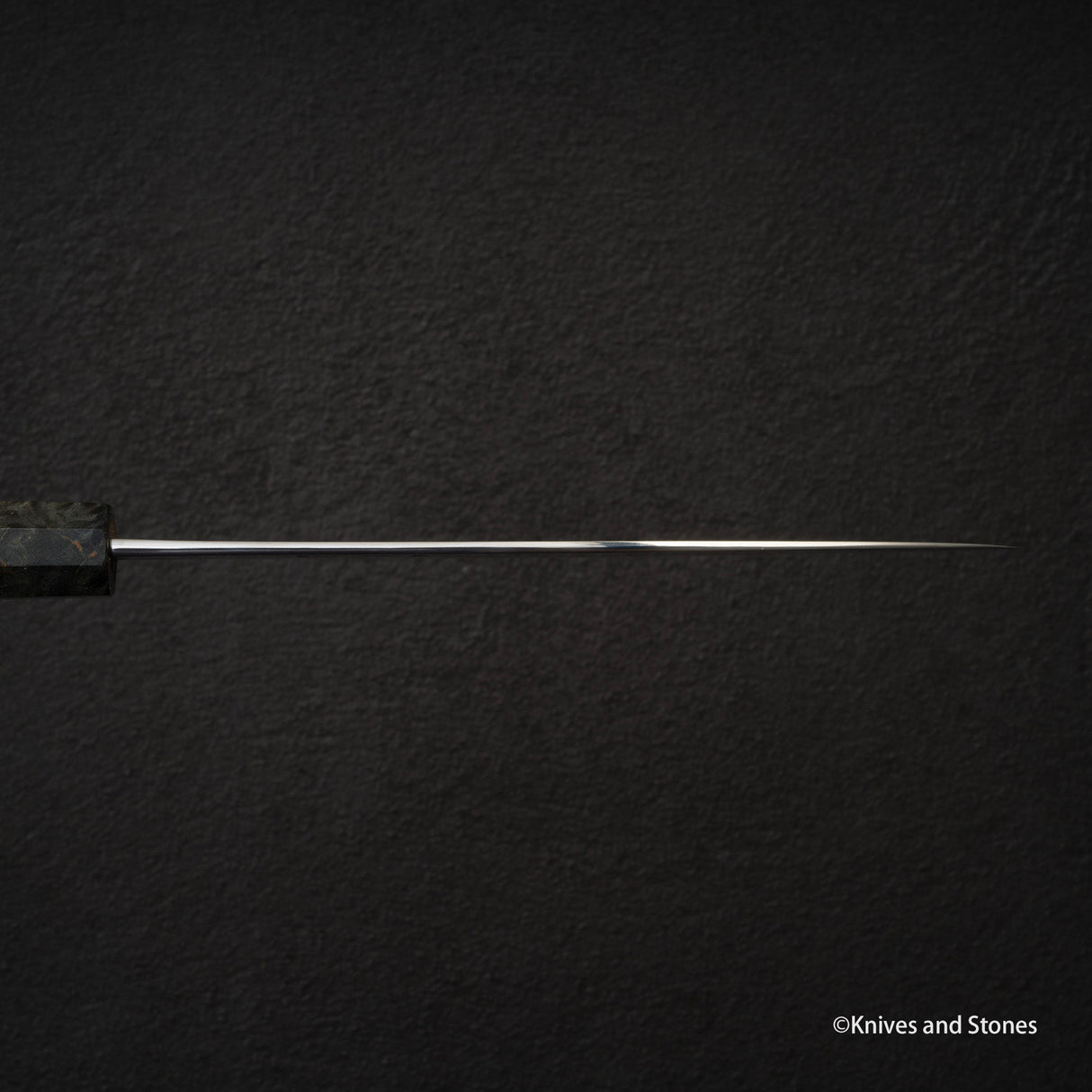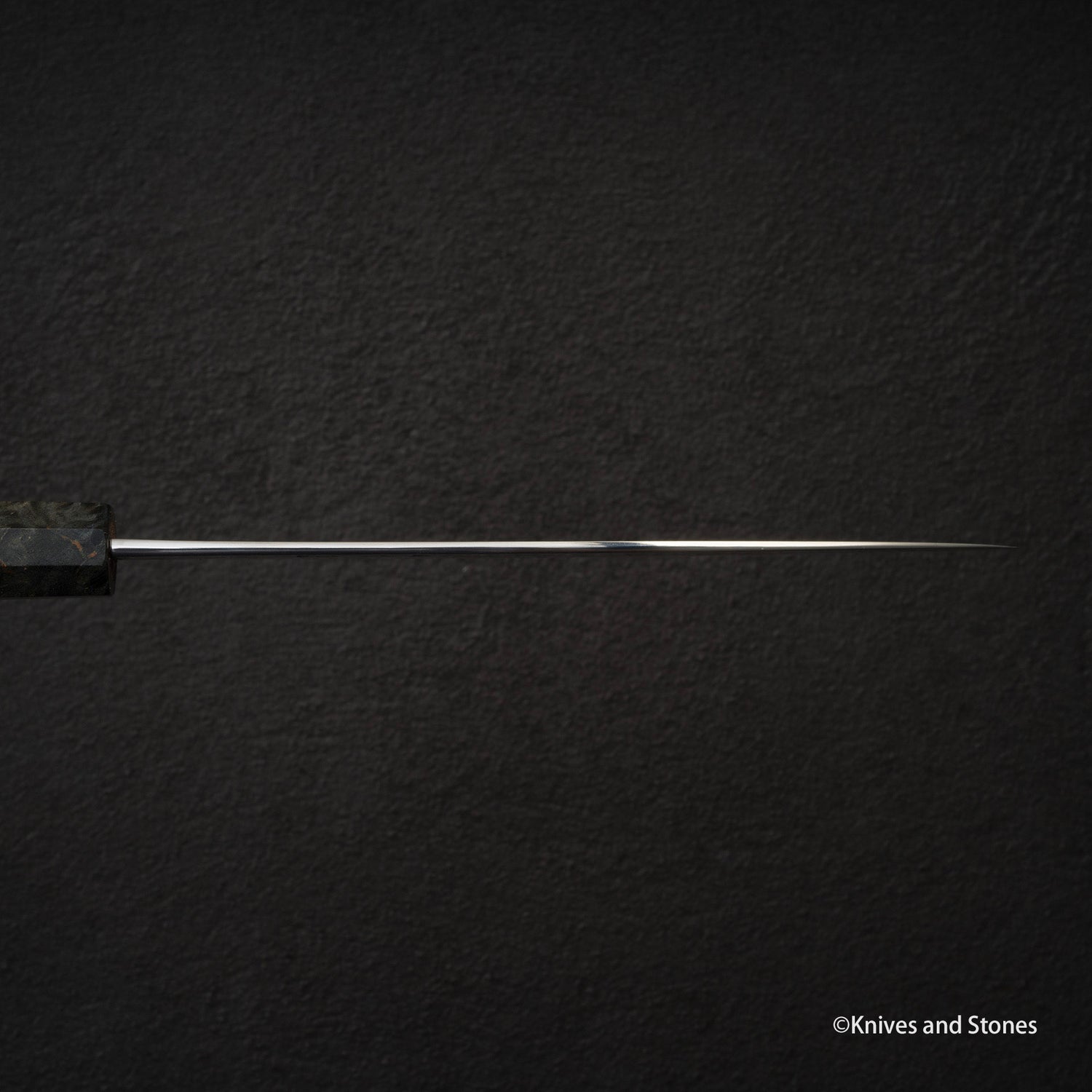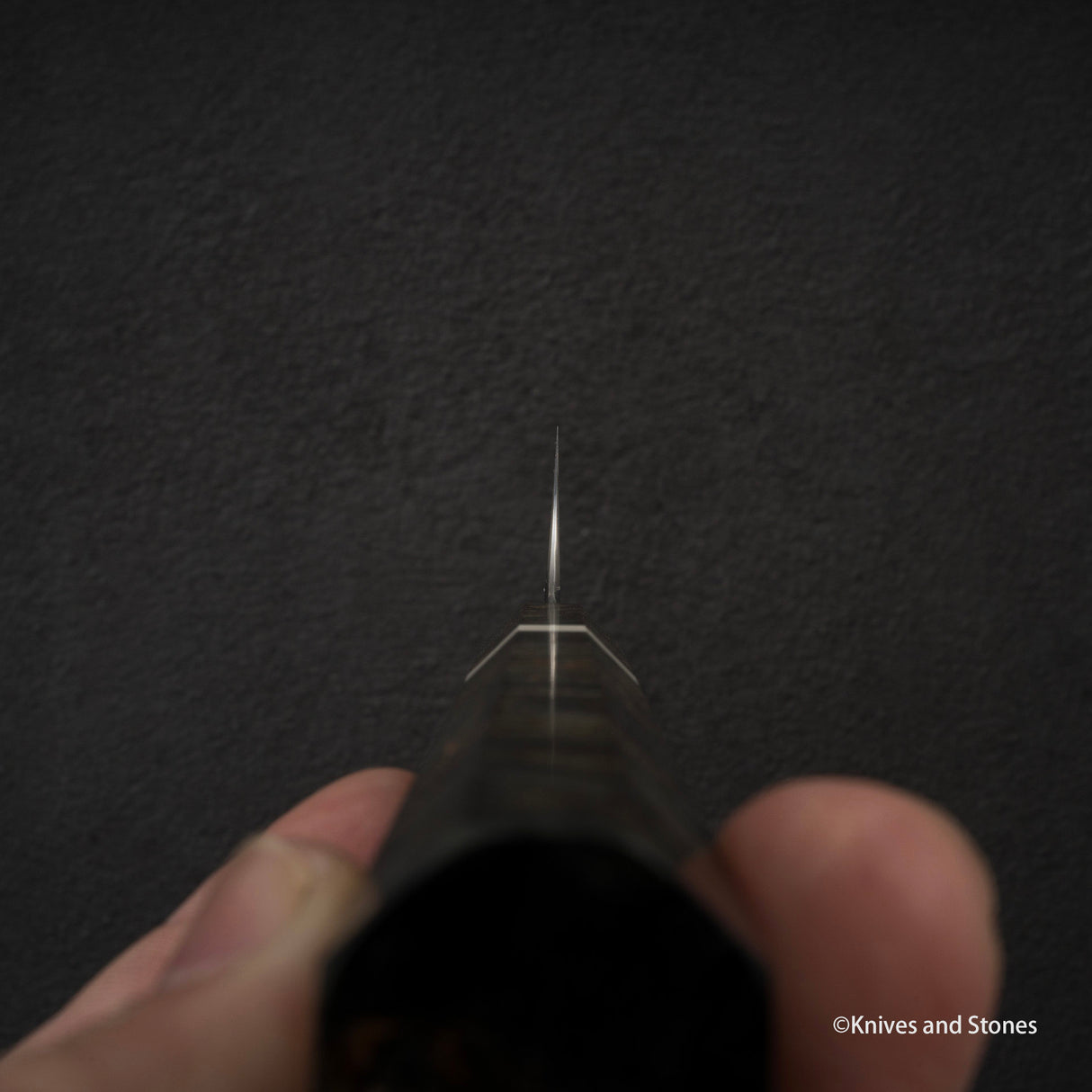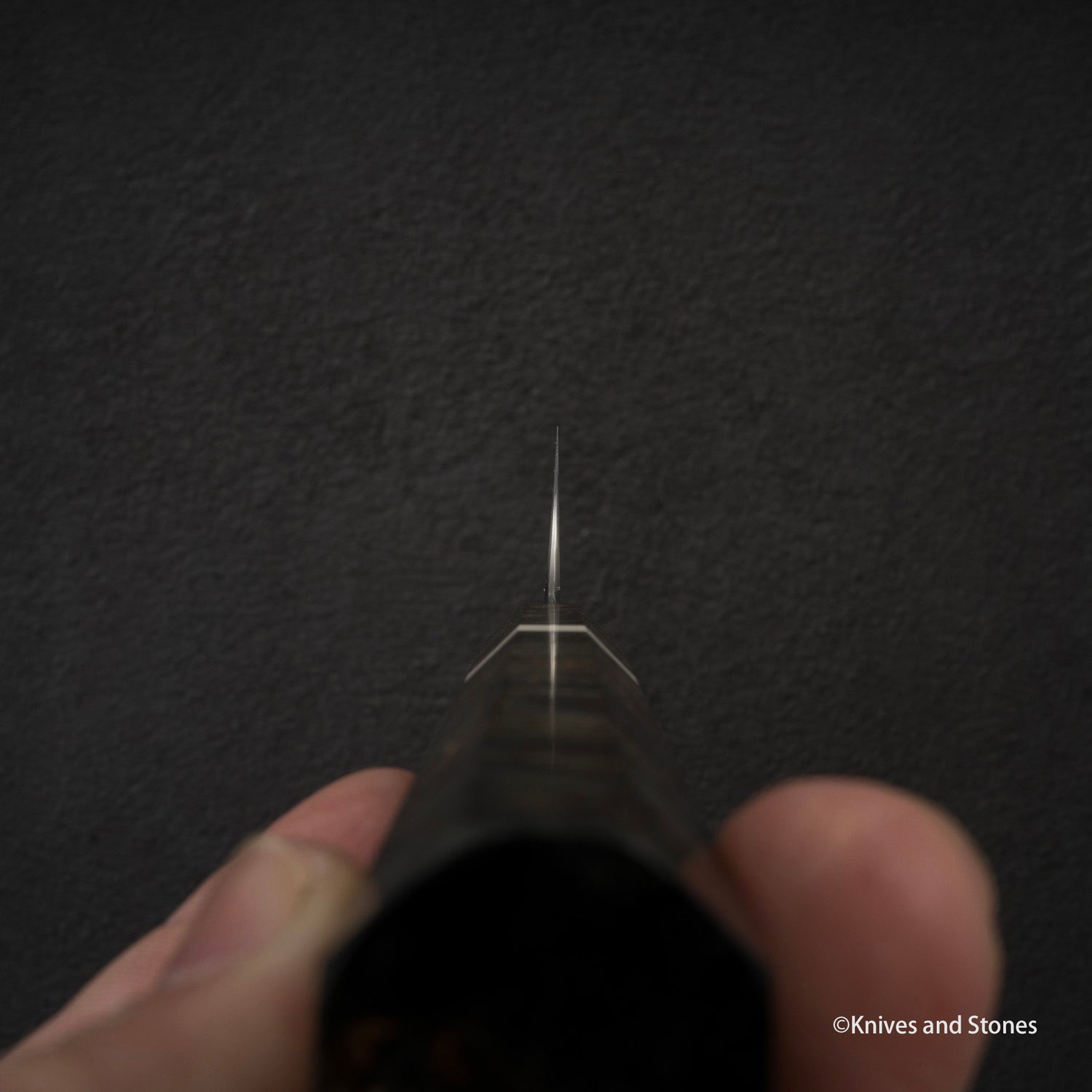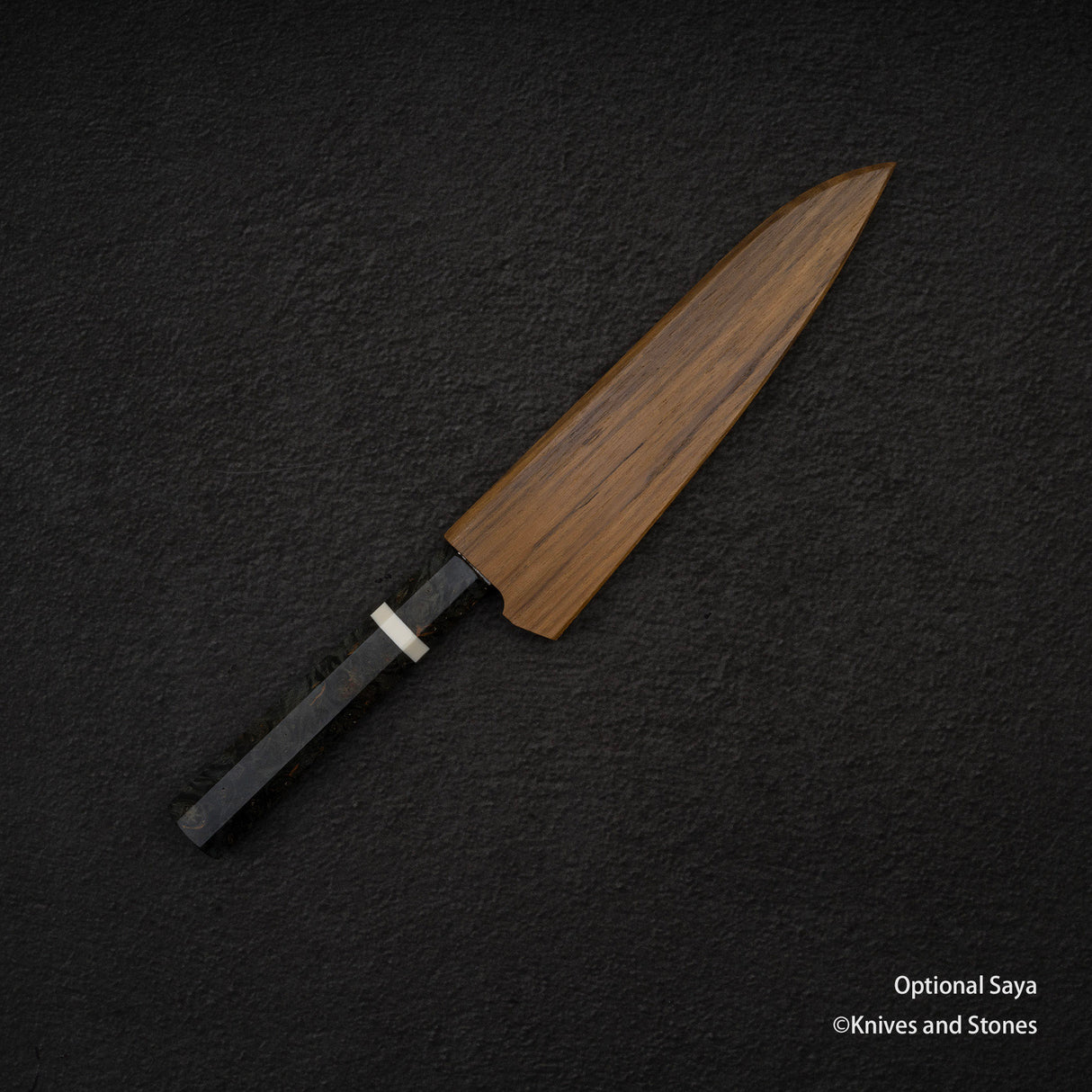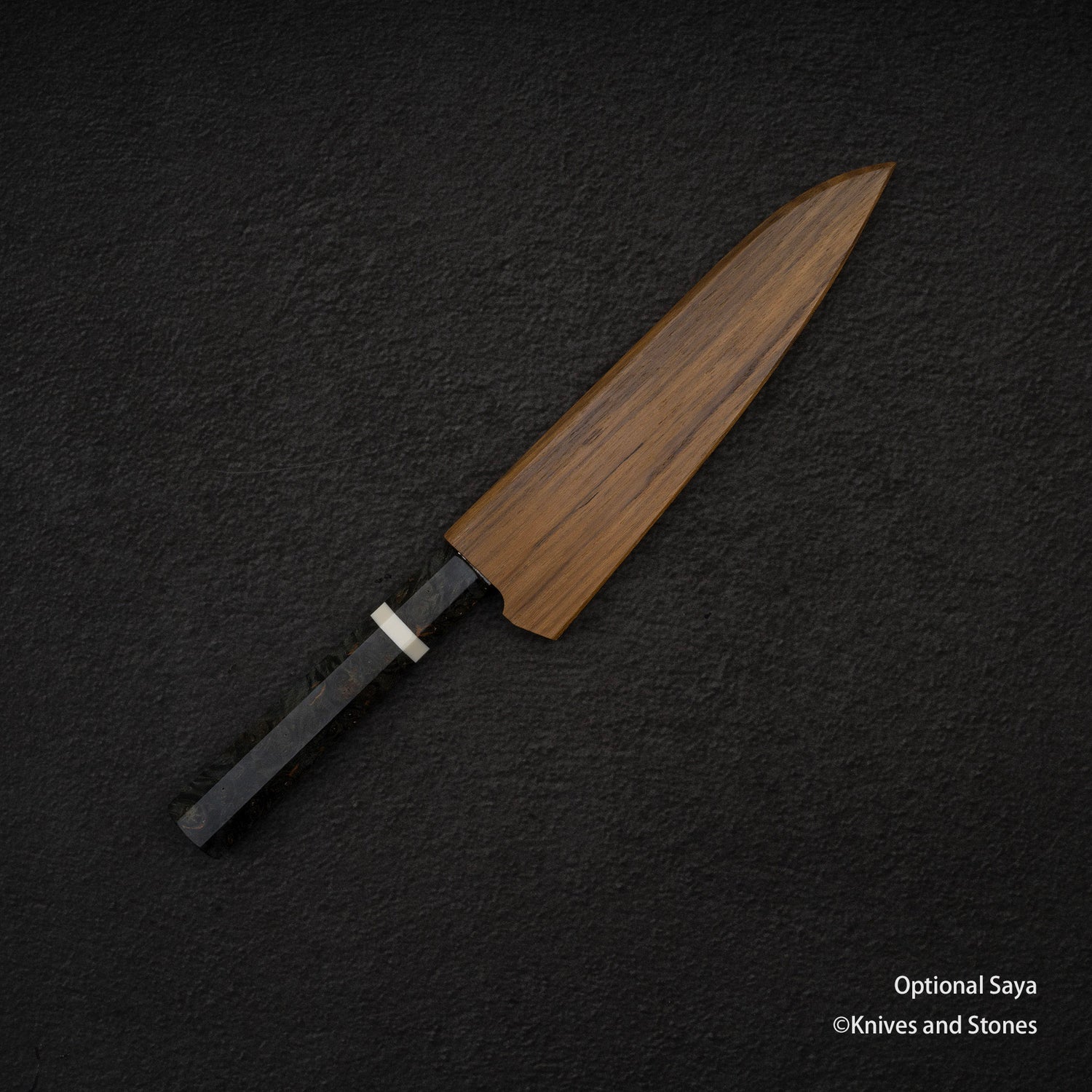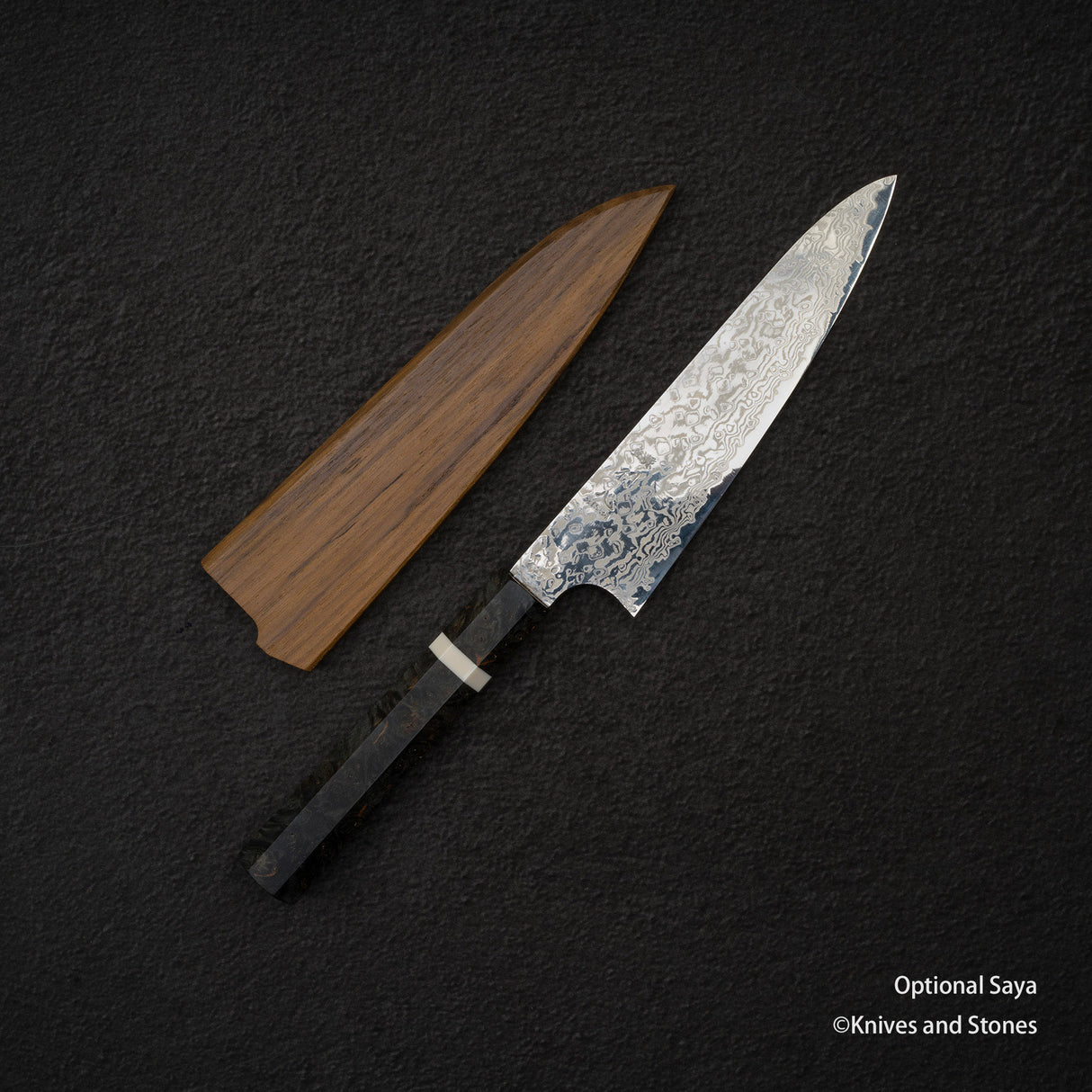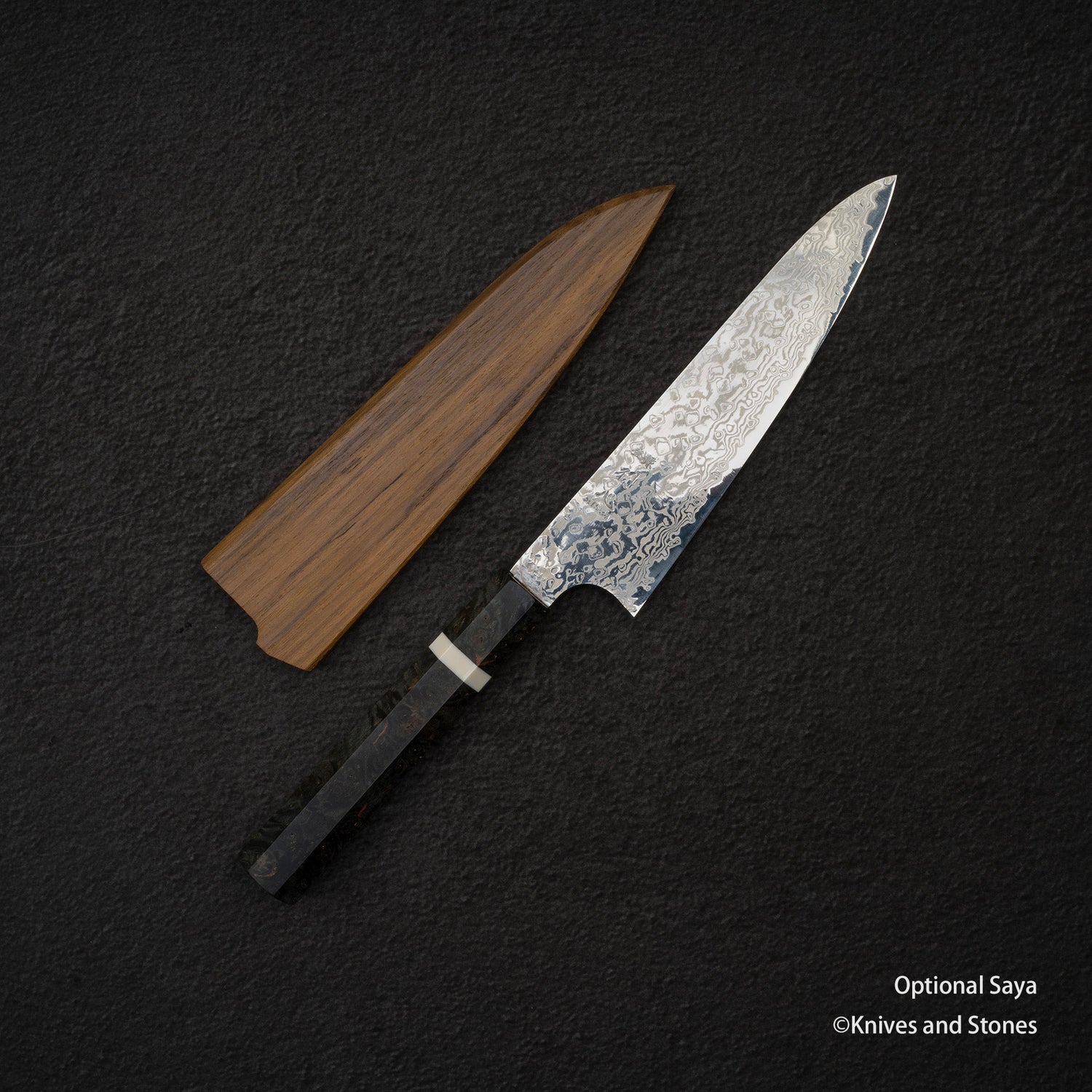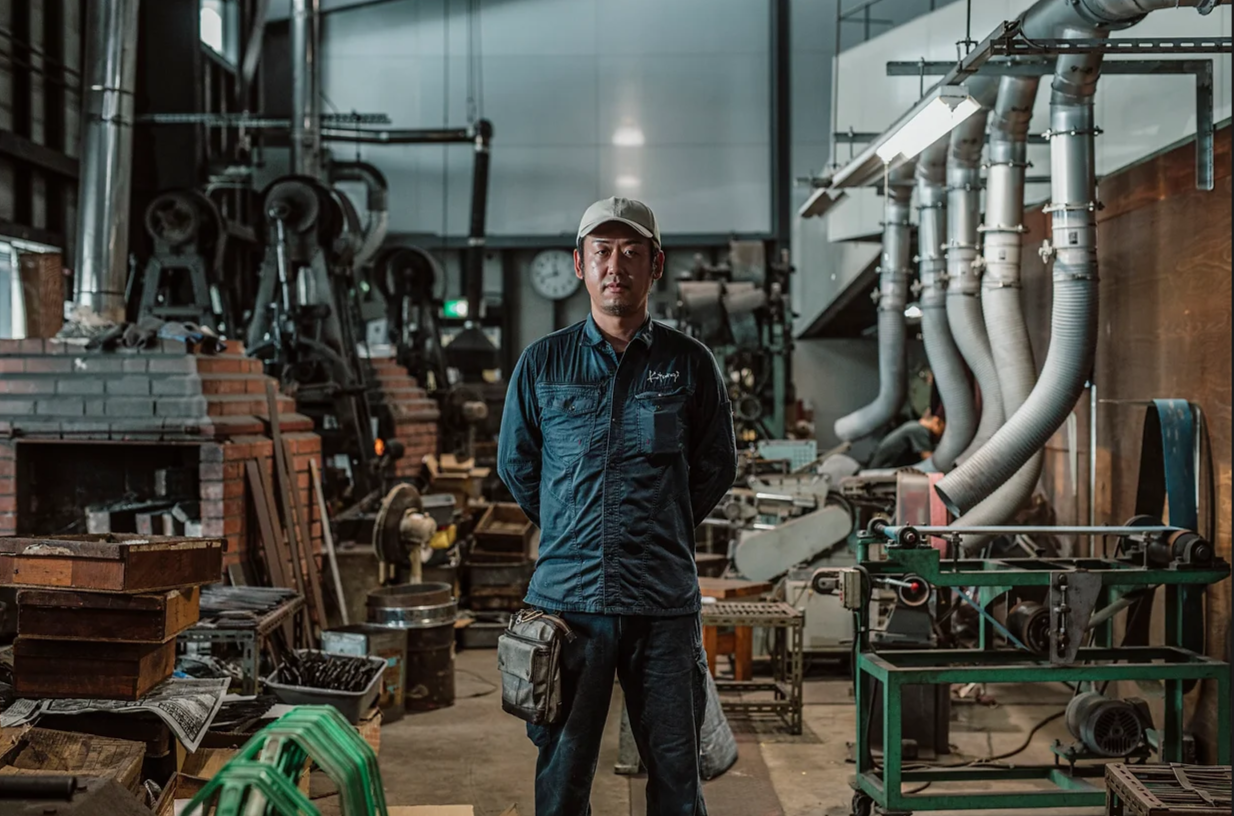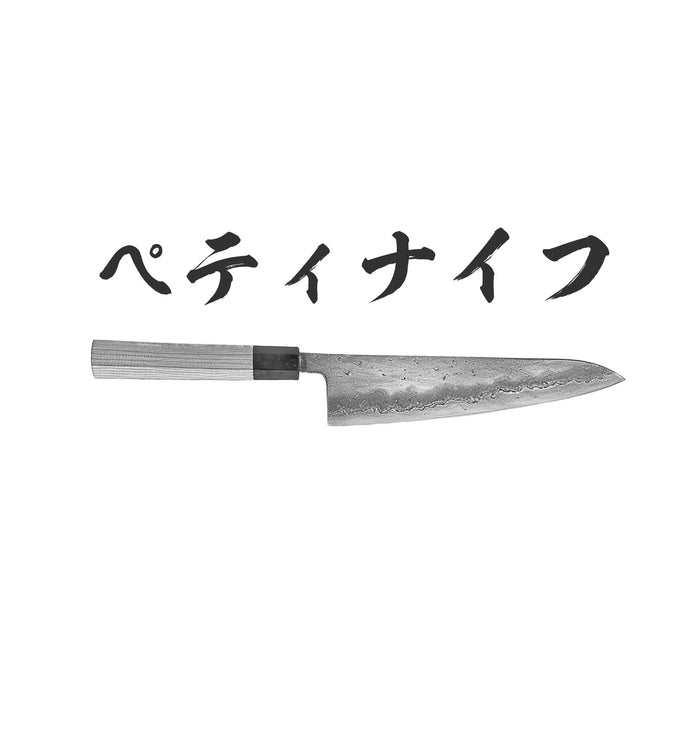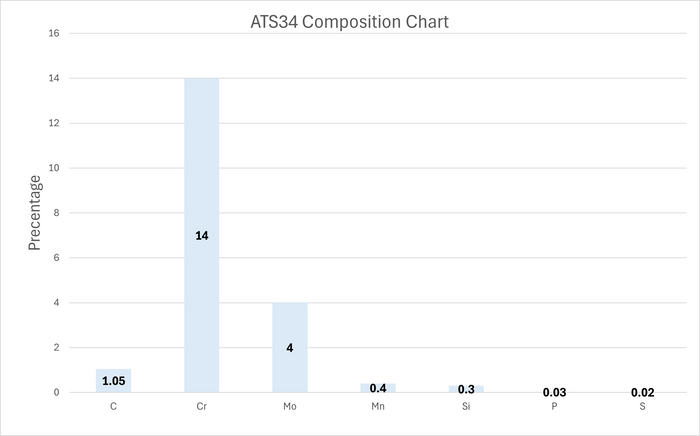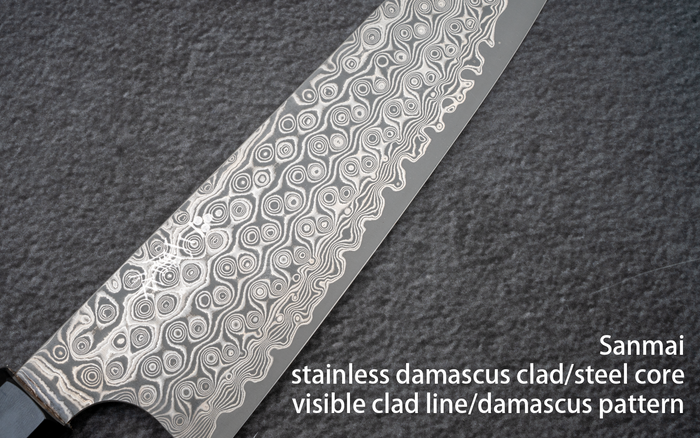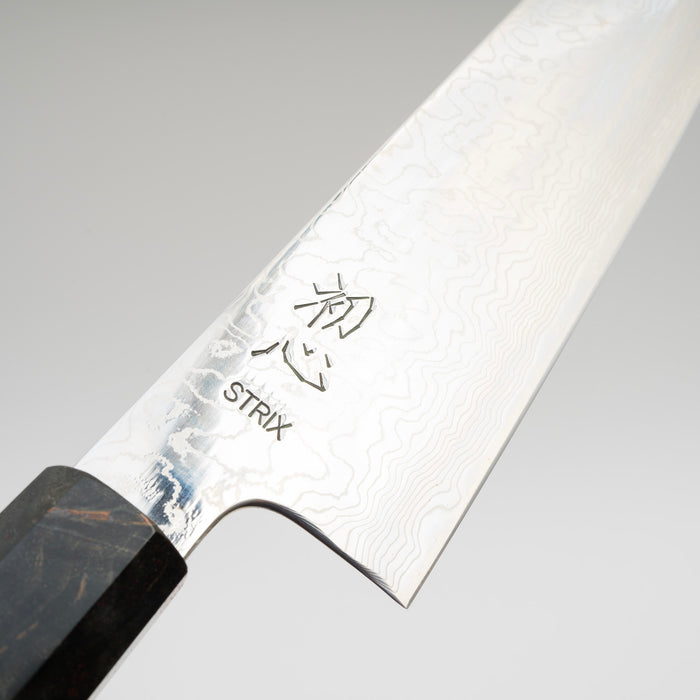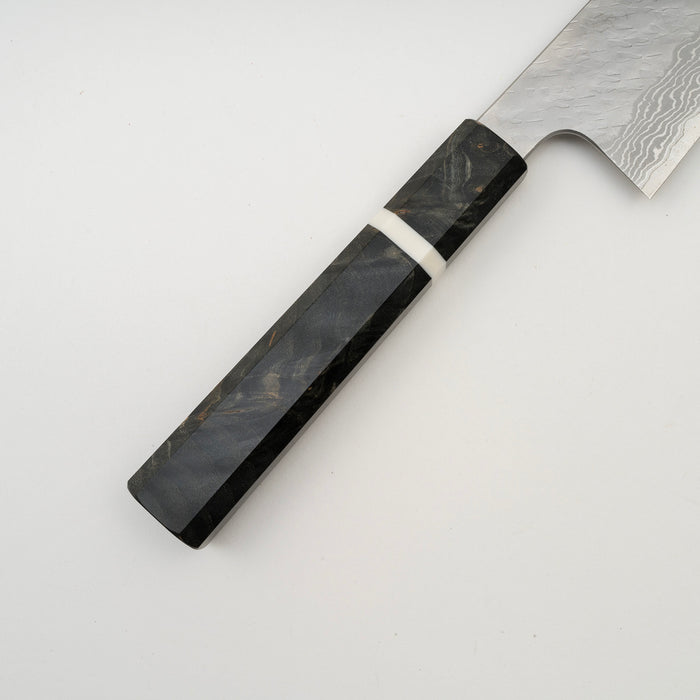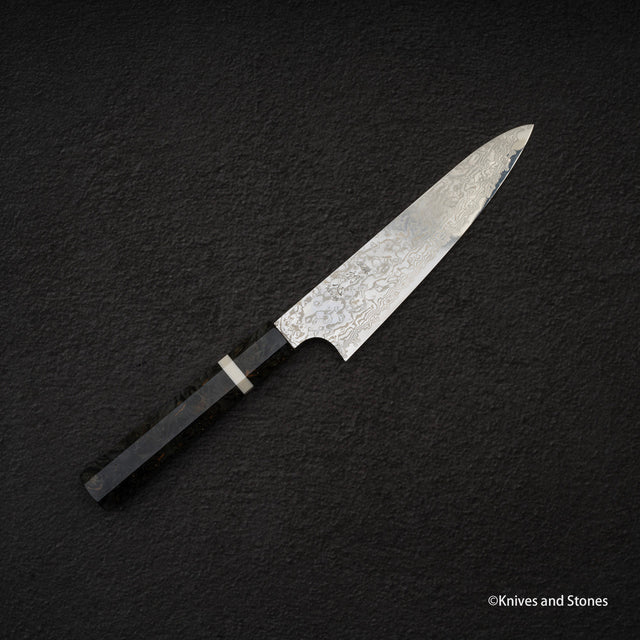Hatsukokoro | SKU:
HT-GINGAATS34-PT150BB
Hatsukokoro Ginga ATS34 Damascus Petty 150mm Dyed Birch
Sale price
$314.98
Regular price
$369.95
Unit price
/
Unavailable
Hatsukokoro Ginga ATS34 Damascus Petty 150mm Dyed Birch is backordered and will ship as soon as it is back in stock.
Couldn't load pickup availability
Set currency to AUD to view correct price matching.
K&S Price: AU $314.98* inc. tax , vs:
K&S Price: AU $314.98* inc. tax , vs:
| Store BF | AU $406.0 | -29.3% |
* For overseas buyers you pay no GST (10%) and low shipping rate.
Last Update: 2025-08-17T17:05:14Z
Detailed Specifications
| Line | Hatsukokoro By Yoshihiro Yauji Ginga ATS-34 Mirror Damascus |
| Profile | Petty / Utility, Paring |
| Bevel Type | Double Bevel |
| Weight | 90 g | 3.2 oz |
| Edge Length | 150 mm | 5 29/32″ |
| Heel Height | 38 mm | 1 1/2″ |
| Width @ Spine | 2.5 mm | 3/32″ |
| Width @ Mid | 2.1 mm | 5/64″ |
| Width @ 1cm from Tip | 0.6 mm | 1/32″ |
| Steel | ATS34 | Stainless |
| Blade Construction | Sanmai - Stainless Damascus Clad |
| Hardness (HRC) | 60 - 61 |
| Surface Finish | Mirror Polish |
| Handle | Octagonal Birch Burl with Spacer |
| Region | Takefu |
| Best for |
|

| Pros | Cons |
|
|
|
Care Instruction
- Don't cut hard things! Japanese knives are brittle so bone hacking is a NO NO!
- Wash with neutral detergent after use, and wipe dry;
- Please don't wash knife with dishwasher, it will damage the wood handle;
- Be careful not to leave the knife close to a heat source for a long time;
- It is a lot more dangerous to cut with a blunt knife than a sharp knife!
- It is best to sharpen a Japanese knife regularly on a waterstone.

